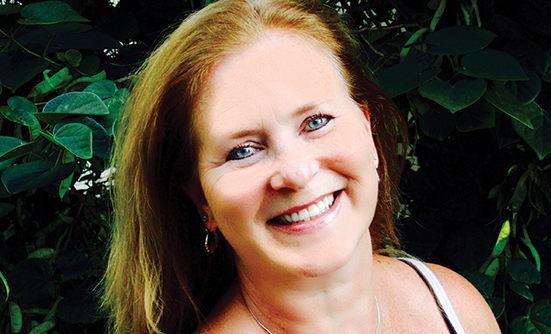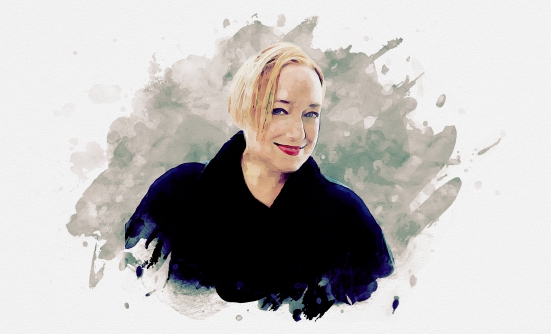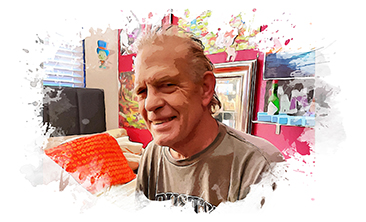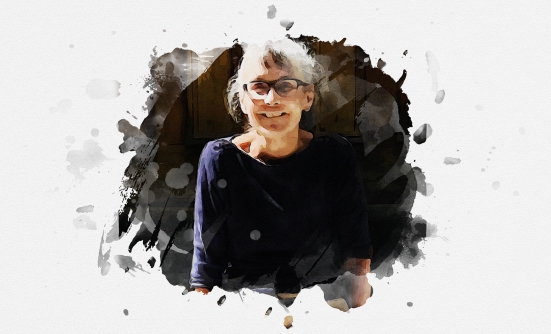“I have what?” I’ll never forget that call on August 7, 2006, from the breast surgeon who had done a biopsy on my right breast just 4 days earlier. I remained calm on the phone, but the moment I hung up, I lost it. “How could it be?” I thought there was no breast cancer history in my family, and I was only 42 years old.
No one was home. The kids were at the pool with their father, and the cellphone service was terrible. I must have left a mangled, desperate message for them, because they all burst in the front door less than 5 minutes later. It was a scary, unfathomable moment for all of us. My life was irrevocably changed since I heard the words, “You have breast cancer.”
What Came Next
The next few weeks were a blur, and almost 11 years later, I’m amazed that I remember any of the details. But I do remember the important things. I got a second opinion and then a third, and they all said the same thing. “You need to have your breast removed. A mastectomy is your best defense.” This was again confirmed by an MRI, which was a scary test. I had to lay face down with my breasts in holes, while I was electronically slid into an MRI machine. The clanging was almost unbearable. A painful biopsy under my right arm confirmed that my sentinel node was positive, which meant that the cancer was spreading; chemotherapy and radiation were imminent. How did this all happen?
Within a month of my diagnosis of invasive ductal carcinoma, I was scheduled to have a mastectomy. On September 7, 2006, my right breast was removed, and I had a procedure known as a TRAM flap reconstruction to create a new breast using tummy fat. I remember looking in the mirror before the operation. The nurse used a Sharpie to make dotted lines around my right breast and across my abdomen, where the incisions were to be made.
I held my arms up to my side, looking at my seemingly perfect breasts, and I remember praying, “Lord, I’ve had a good life. I love my children, my family, and my friends so much. Thank you for all of the experiences, and for all of the blessings you have given me. If it is my time, I am ready.” I really was: I thought I was going to die.
After nearly 7 hours, I remember waking groggily and moaning from the pain when they wheeled me into my room. My mother, father, husband, and friends had waited for more than half a day to hear that I was fine and had come through the operation with flying colors. But this was only the beginning. Nearly 11 years later, after 12 weeks of chemotherapy, 5½ weeks of daily radiation, and several more procedures, I am still dealing with the effects of cancer, and my story is far from over.
The Blessings of Caring People
My hospital stay was amazing. My doctors and nurses were so attentive, and I was relaxed and visited by people near and far. I felt like a movie star. I stayed there for nearly a week and was released after the drains were removed from the corners of my abdomen and breast. I was alive and ready to get this done! So, back home I went, believing that I could beat this.
It was a tough time for my kids, who were only 11 and 14 at the time. Life was anything but normal. They weren’t used to seeing their Mom on the couch, unable to do much. I remember one afternoon; I had taken a pain pill and was very groggy when my 11-year-old son came home from school. He was quite worried about me so I didn’t take any more pills during the day, because I didn’t want to frighten him.
I was home for about 2 days when the meals started coming. At first, it was every day, then it was 3 times a week. This went on for nearly 5 months! I was overwhelmed. My friends and neighbors fed my family with their food and their love. And the phone calls. And cards. I still read those cards to this day. Again, I felt like a star. I felt so undeserving yet so blessed.
Getting Out There
Chemotherapy started a month after surgery. I had asked my oncologist if I could wait to start, because my 30th high school reunion was planned for 3 weeks after my surgery. Radiation was to begin after chemo was completed. I had to have 12 weeks of chemotherapy—1 dose a week, and 1 blood test before each round of chemo. This meant 2 visits a week to the doctor, and I worked full-time during it all.
I had to keep my life as normal as I could; I needed to have a reason to get up and get dressed every day to keep me going.
It was during the first few weeks of chemotherapy that I discovered a group therapy program nearby. I had resisted for about a month. In retrospect, I wish that I hadn’t waited. I met the most incredible women, who were going through what I was going through (some with much worse diagnoses), and I could be my “sick self” there.
It was transformative. I recommend it to everyone going through this experience. When I was leaving the meeting one night, I saw a sign-up sheet to join a memoir writing group. I always wanted to write, so I signed my name.
The first 4 sessions were magic. A lovely woman who taught at the local community college had generously offered her time to conduct this class. This woman has since become one of my dearest friends. She gave us weekly assignments that I diligently completed. I remember sitting in the “chemo chair” with my earphones in, blasting my favorite rock ’n’ roll music and writing. I was transported to another world, and I loved it. She ended up teaching us in another 4-week session, and this got me through one of the hardest times of my life.
Dealing with Side Effects
I got through injecting myself with the drug Neulasta (in my thigh) to help prevent infection, taking pills to aid with nausea, and injecting hundreds of needles into my implanted port, filled with the strongest drugs I had ever taken, with minimal inconvenience.
I remember when the doctor told me that I would lose my hair about the fourth week of my treatment. I was devastated. I had shoulder-length blonde hair that I wasn’t keen on losing. I mean, women aren’t supposed to be bald. I took matters into my own hands and cut it short before I lost it. It was traumatic, but not the end of the world. I went to the mall to have it done rather than to my usual hairdresser, because I didn’t want to see anyone I knew.
It ended up being an incredible experience, because the girl who did my hair ended up coloring it for nothing; her mother had also had breast cancer. I met another angel that afternoon, as my sweet 11-year-old son sat and waited for me. When I finally lost all the hair, painfully and thoroughly, I accepted it and moved on.
You Have a Choice
So much more happened to me in the next 10 years. I still don’t know any more than I knew then, but I have learned that when something tragic happens to you, you have a choice. You can let it define you and let it take over, or you can let it transform you into the person you want to be. You can let it release your fears to do things you never thought you could do, and you can just be happy with who you have become.
You can also let people help you—when you want to, on your terms, because people love you and want to help. Let them. Do what you need to do, and rise above your pride and prejudices. If you can do that, I promise you, you will get through this and appreciate being a member in the club that no one wants to be inducted into. You will wake up in the morning knowing you are blessed—just for waking up.
For more stories by Lisa, search for her name on YouTube or Google under “Lisa DiMaggio-D’Ottavio” or “Lisa D’Ottavio.”
















